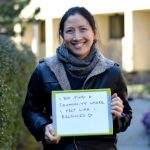About Bounce
Bounce at McMaster was an initiative funded by the 2020 McMaster Okanagan Special Project Funding. We shared diverse, real stories told by McMaster faculty and alumni about their experiences as students, with a vision to build campus-wide resilience. By sharing stories through podcasts and videos, we hoped to build a stronger sense of connection throughout our campus and to help students, as well as faculty and staff, to recognize that we are fellow human beings, all of whom can struggle and suffer during our lives.
The stories told here are ones which could easily have remained untold. They are stories of loss, grief, relationship difficulties, transitions, mental health problems and more. We hope that by listening to them, many will realise that they are not alone and that they can find their way through difficult times and experiences. We envision that Bounce can take us another step forward toward becoming a more supportive and resilient university community, one that is more inclusive, caring and open to many different people and perspectives.
What is Resilience?
Resilience is commonly defined as the ability to bounce back from adversity. Particularly in the past, resilience has been seen and discussed as though it’s a quality or capacity which individuals develop or carry within themselves, or either have or don’t have. Sometimes it is implied or assumed that if we are resilient, we can overcome challenges alone.
Many current researchers and thinkers in the field of resilience are now taking a different approach – a social-ecological approach – recognizing that broader environmental and systemic factors not only influence how much adversity an individual will experience in their life, but also their ability to bounce back, recover or even grow from difficult or traumatic experiences. One resilience researcher, Dr. Michael Ungar, defines resilience as “the capacity of both individuals and their environments to interact in ways that optimise developmental processes.” If you would like to read more about Michael Ungar’s work on resilience, please click here.
This resilience definition leads us to think more deeply about the systems that surround individuals – families, friends, schools, neighbourhoods, and communities – which can support or interfere with someone’s ability to recover. For example, when individuals are embedded in systems in which discrimination is tolerated or ‘built in’, where there are no ‘second chances’, or there is inequitable access to services, this can interfere with an individual’s ability to bounce back from adversity or trauma.

We envision that Bounce at McMaster can help us to build resilience, individually and collectively, by increasing mutual understanding, creating connections, tackling stigma, and offering hope through the sharing of stories.
How Bounce Came to Be
Bounce at McMaster was inspired and informed by other resilience-building initiatives, which have been successful in improving dialogue to address issues of mental health, well-being, and suicide in post-secondary communities. This includes the “original” Bounce project at the University of Victoria. We have adopted the name Bounce at McMaster with their permission.
Bounce at the University of Victoria was created by Rebecca Gagan, a Humanities Professor at University of Victoria and McMaster alumnus, who was introduced to us by Dr. David Clark: a member of the Bounce Team, Professor in the Department of English and Cultural Studies, a member of the Council of Instructors of the Arts and Science Program, and an Associate Member of the Department of Health, Aging, and Society at McMaster.
Rebecca developed Bounce to foster a community dedicated to supporting students by normalising and de-stigmatizing open discussions of success and failures during the university experience.
Projects that Inspired Bounce at McMaster
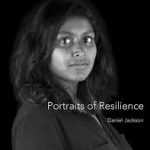

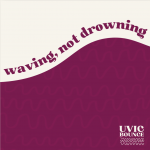
Bounce Stories
Welcome to our collection of stories.
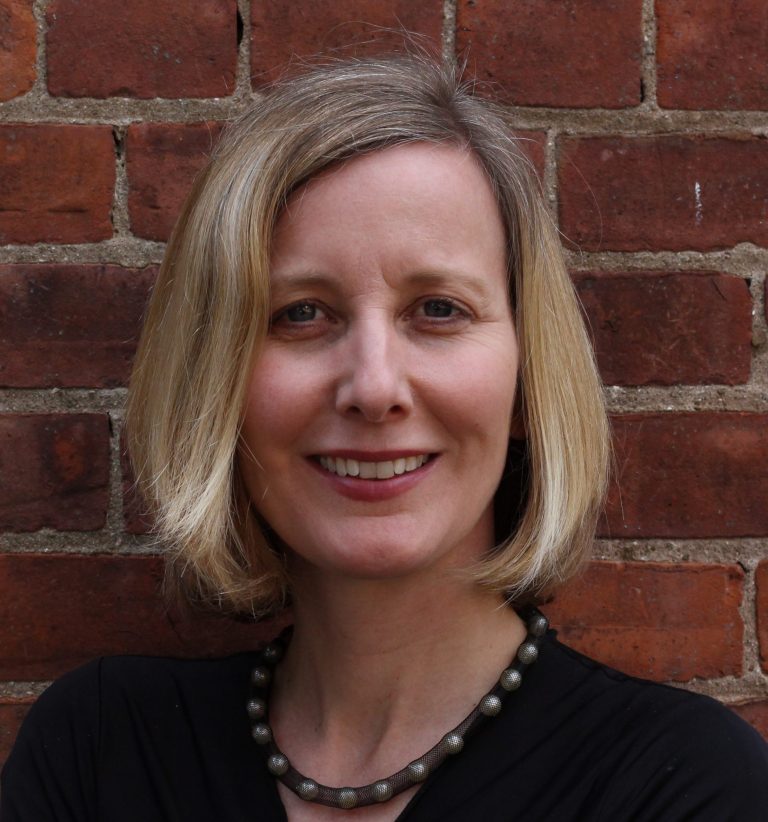
Introduction to Bounce with Dr. Catharine Munn
Welcome to Bounce! In this short episode, you’ll get to know Dr. Catharine Munn, the Bounce project leader. She’ll walk you through her inspiration for Bounce, how she hopes Bounce will help the McMaster University community, and even stories of the furry friend that helped her through the pandemic.
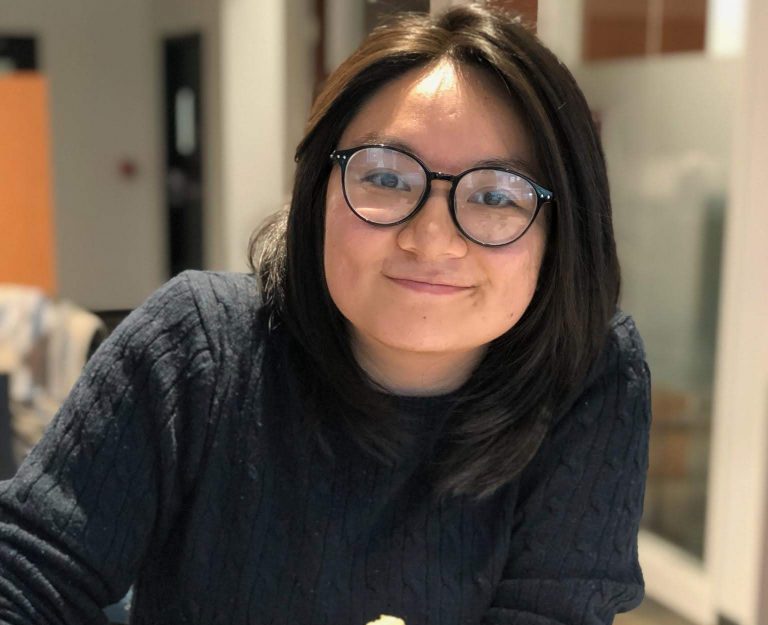
Zeinab Khawaja on Finding the Courage to Reach Out For Support
Follow Zeinab as she describes how she puts different parts of her identity together during her time as an undergraduate student at McMaster. Zeinab had a great time at Welcome Week and would make some close friends in her first year. Eventually in first year, she would open up to a few people about what had happened a few days before Welcome Week – her wedding for her arranged marriage. Zeinab’s story highlights how the act of sharing your story is healing. She reminds us that “even if you don’t feel like you deserve it, even if you’re not sure what will come of it, even if it might end up being bad and hurtful. The trying is what matters. Knowing that every time I tried to tell someone, I was telling myself, you deserve to be heard.”
Zeinab has also shared a spoken word piece that she has written about the events discussed in this episode.
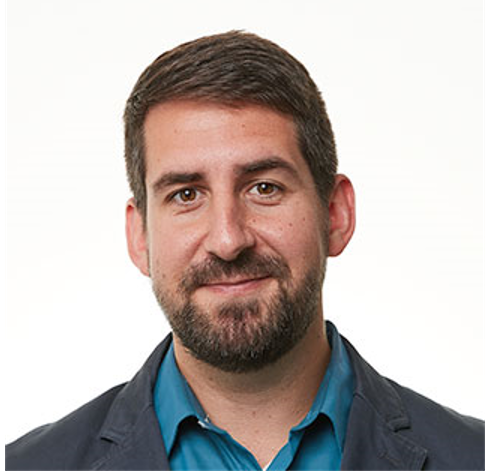
Dr. Mat Savelli on Slowing Down And Reflecting on What You’re doing and Why
Dr. Mat Savelli loved school, and this didn’t change when he was doing his bachelor’s degree at McMaster University. What did change was his relationship with his parents, siblings, and girlfriend. In response, he continued to focus on school until he realized in third year that that too would be ending soon, leaving him uncertain of many things including which continent he’d be living in. Now, reflecting back on this time period, Dr. Savelli would want to tell his younger self three things: 1) There isn’t something wrong with you; 2) Slow down, step back, and think about what you’re doing and why. Is it something you really want? 3) There are supports, resources, and other pathways open to you. You don’t have to continue down this path if you don’t want to.

Dr. Deborah Sloboda on Being Seen as a Whole Person Who has A life Outside of the Lab
Dr. Deborah Sloboda is currently a well-known researcher in fetal and maternal physiology. If you don’t find the advice, “don’t be a superwoman” helpful, Dr. Sloboda would agree with you. Dr. Sloboda defended her PhD thesis (while heavily pregnant) at the University of Toronto, and moved to Australia for a Postdoctoral Fellowship (PDF). Having her baby in a different country was a challenge in itself, but the bigger ongoing challenge was being seen as a whole person, who has a life outside of the lab. At the time of her PDF, Dr. Sloboda was the only female PhD scientist in her department. Despite the overall outward appearance of equity, subtle but profound differences in how Dr. Sloboda was treated impacted her daily work life. Her support network helped her navigate these difficult times, and continue to do so today.
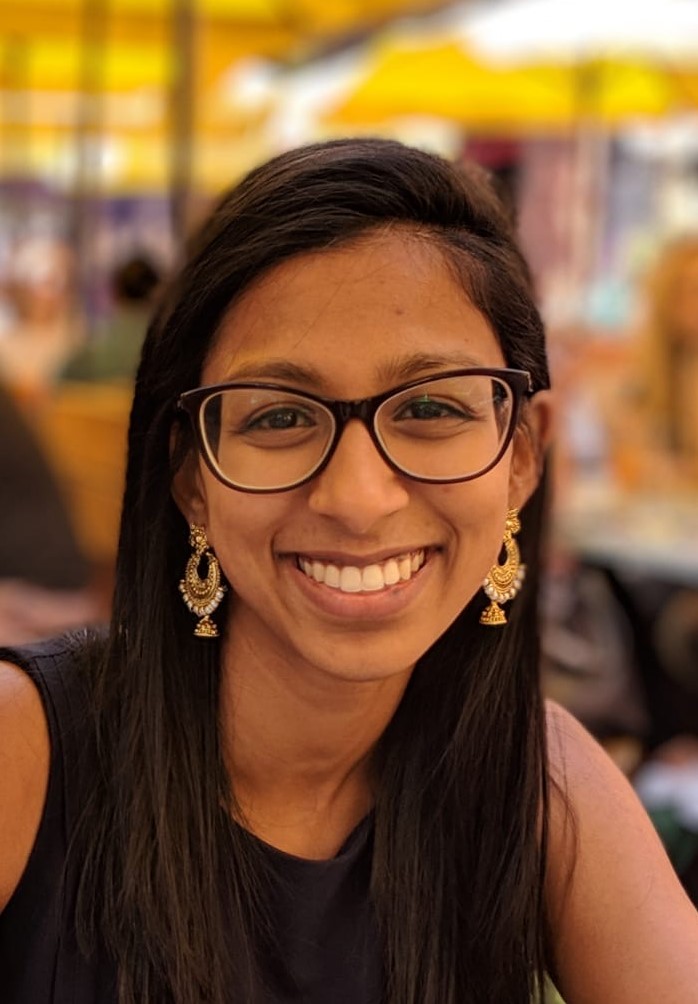
Mathura Mahendren on Changing Relationships and Your Body’s Response
Mathura Mahendren was the first in her immediate family to have attended university. She found that the transition to university was difficult, but not necessarily due to the schoolwork. How do you find your people amongst so many people? How much freedom do I really want? Do I really want to pull all-nighters? How do you manage your identity when it feels like home and university are two different worlds? How much can I tell my parents about my life without stressing them out?
If anything, sometimes completing schoolwork was almost a relief, especially when Mathura was going through the breakup of a relationship from high school. She learned the hard way that resisting pain is more painful than feeling it, and that there is value in cultivating support and safety nets to catch you in these more vulnerable life moments. Through it all, Mathura gained a more nuanced understanding of her self, emotions, and body, as well as a better sense of how to work with them.
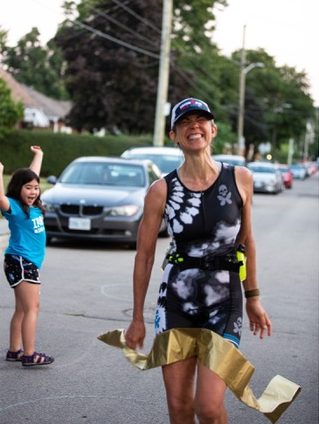
Dr. Jennifer Heisz on Overcoming the Shame She Associated with Her Mental Illness
Many would describe Dr. Jennifer Heisz as a kind and considerate person. She also believes this to be true, but there was a time when she was seriously concerned about who she was. It all started during graduate school, when strange and distressing thoughts began showing up in her mind. The thoughts made her afraid she might hurt others and she began to close herself off. But the thoughts kept coming. At that point, she went to see a psychiatrist but her mental health journey did not stop there. After seeing multiple mental health professionals, enduring disastrous group therapy, and trying out different coping mechanisms, she finally found a solution that worked for her. Listen to how Dr. Heisz goes from hiding her story at all costs, to sharing it with us and in her book that is coming out March 2022, Move the Body, Heal the Mind.
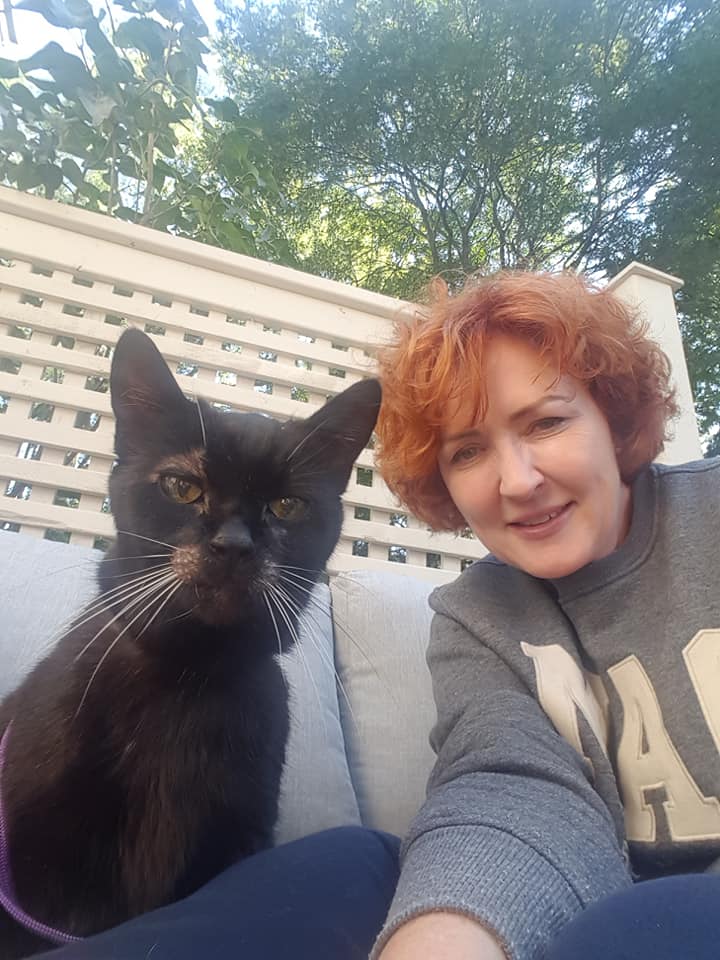
Dr. Tracy Prowse on Knowing when Self Help Isn’t Enough
Dr. Tracy Prowse was finishing up her PhD in biological anthropology at McMaster when she realized that she constantly felt unsure of herself, was worried that she didn’t belong in graduate school, and found it difficult to describe to her friends what was wrong. At the time, it was difficult to understand what was happening. She knew that graduate school was difficult and had experienced a recent breakup. She also had faced difficult circumstances when her mother passed away a few years ago. However, even taking into consideration situational factors, she still felt disproportionately and relentlessly sad and anxious.
With family far away in Alberta, Dr. Prowse relied on her friends and eventually her supervisor, whom she confided her concerns to. She continued managing on her own by trying different self-care techniques, before coming to the decision to seek the help of a psychiatrist. The combination of regular therapy and medication helped her work through this period of depression. Now, Dr. Prowse is in a good place, but she also makes it clear that she would not hesitate to reach out for help again, if needed.
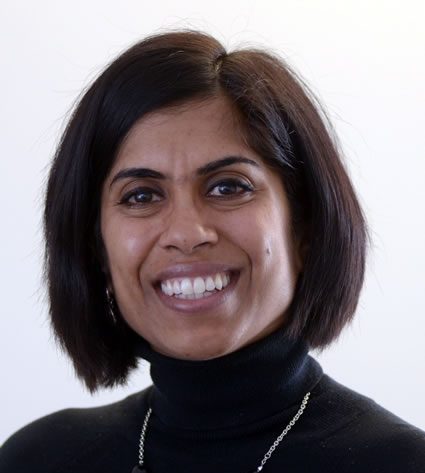
Dr. Natasja Menezes on Carrying on After Receiving Negative feedback
Dr. Natasja Menezes would have wished to have more psychological awareness when she was younger. She wishes that she had the ability to press pause instead of pushing through school until there was a breakdown (which happened frequently). She wishes that she had the ability to reflect and realize that sometimes, difficult conversations involving you are not necessarily about you or because of you.
Even after two decades making a living processing difficult conversations, Dr. Menezes can still be viscerally affected by one back in her undergraduate medicine days. In this conversation, Dr. Menezes highlights how helpful hearing different perspectives can be and how she uses that in her roles as a psychiatrist, educator, and researcher.
Bounce Resources
Are you looking for more supports to help build resilience and harness the power of storytelling? Explore the resources below.
Information Box Group
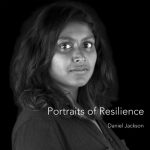
Portraits of Resilience Visit Portaits of Resilience Website
Portraits of Resilience tells the stories of individuals from MIT who have experienced depression or anxiety. These stories describe how they endured through this experience and found purpose in it.

Art With Impact (AWI) Visit AWI Website
Art With Impact inspires youth to share their experiences with mental health through film. They offer a platform for sharing these films and run workshops to help individuals to understand their mental health through film.

The MacCast - Unconventional View Podcast Episodes
The MacCast – Unconventional shares the stories of McMaster alumni. It highlights the idea that everyone’s career journey is filled with unexpected opportunities and roadblocks.

SBSK Visit SBSK Website
SBSK is a space where neurodiverse individuals can share their stories and truths. It acknowledges that each person’s story is unique and worthy of being heard.

Youth Mental Health Canada (YMHC) Visit YMHC Website
YMHC is a community-based, youth-led non-profit organization that aims to engage youth, families, and communities in mental health education, support, advocacy, and change. They have countless resources and reports available on youth mental health.

The Power of Storytelling (NPR) Read NPR Article
The NPR published an article about stories’ impact on our behaviours, attitudes, and connection to others.

How Various Systems Affect Resilience and Mental Health Read Ungar's Paper
Michael Ungar’s paper will give readers a review of the concept of resilience and discuss the various biological, psychological, social, and ecological systems involved in sustaining and improving resilience.
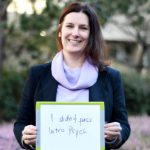
University of Victoria Bounce Learn About UVic Bounce
University of Victoria (UVic) Bounce is the inspiration for Bounce at McMaster. This project normalizes and destigmatizes discussions about success and failure by sharing the stories of UVic alumni and faculty in the form of videos and podcasts.
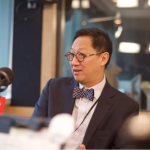
The President of UBC's Mission to Improve Mental Health on Campus Read Ono's Article
In this article, individuals, including UBC’s President, Santa J. Ono, share their stories of encountering mental health challenges as students. These challenges are what inspired Ono to ensure that UBC offers its students the mental health support they need.

The President of UBC's TED Talk About Tackling the Youth Mental Health Crisis View TED Talk
Santa J. Ono, the President of UBC, bravely shared his own experience with mental health issues in this TED Talk. He stresses the importance of supporting young people struggling with mental health issues which he has made a priority at UBC.

The Stanford Resilience Project View Video Playlist
The Stanford Resilience Project is a collection of videos where Stanford University students share their stories to support and motivate students through academic setbacks and difficulties. This project tries to change the perception that failure should be avoided by emphasizing its importance in the learning process.
Meet the Bounce Team
The Bounce at McMaster team is an interdisciplinary team from various backgrounds and walks of life. Inspired and informed by their own experiences as students and conversations they have had with students, they are passionate about promoting more open discussion of failure and success. Continue reading to meet the members of the Bounce at McMaster team!
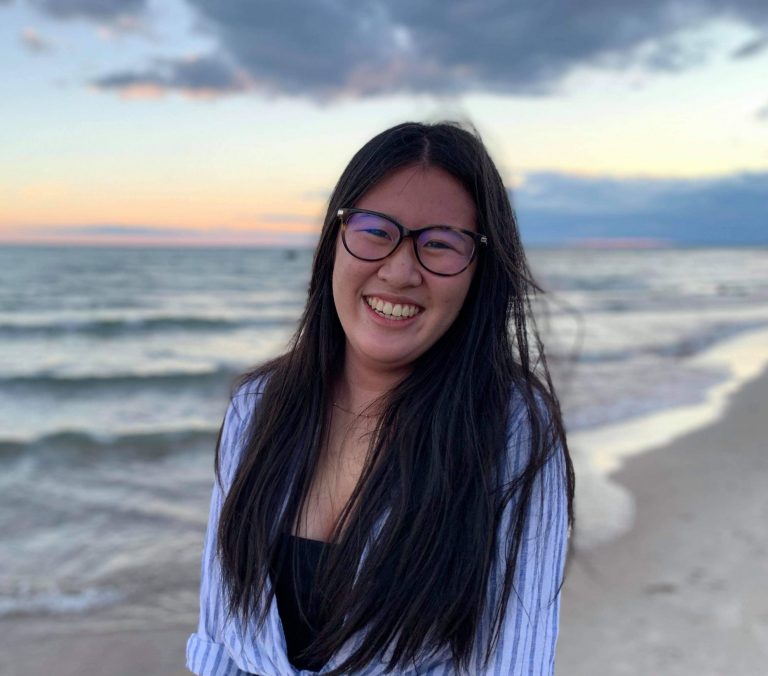
Jordan Chin
Jordan Chin is a recent graduate of McMaster’s Bachelor of Health Sciences program. She is currently on a quest to find a career that she’s passionate about. While this adventure has offered insight into who she is and her passions, it has also been extremely stressful. Jordan finds solace in embarking on culinary adventures, starting new art projects, and showcasing her bad dance moves to music from the 70s to present day.
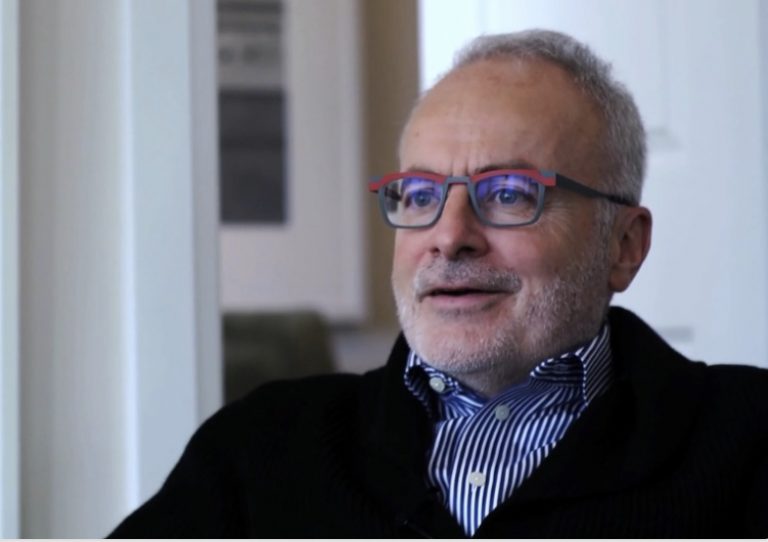
David Clark
An award-winning teacher and supervisor, David L. Clark is Professor in the Department of English & Cultural Studies as well as a member of the Council of Instructors in the Arts & Science Program. An avid fan of Jamaican dub from the late 1970s and early 1980s and, with his wife, Tracy Wynne, a long-time collector of contemporary Canadian art, he also cherishes all nonhuman animals–including Zoe and Miranda, his high-maintenance cats.
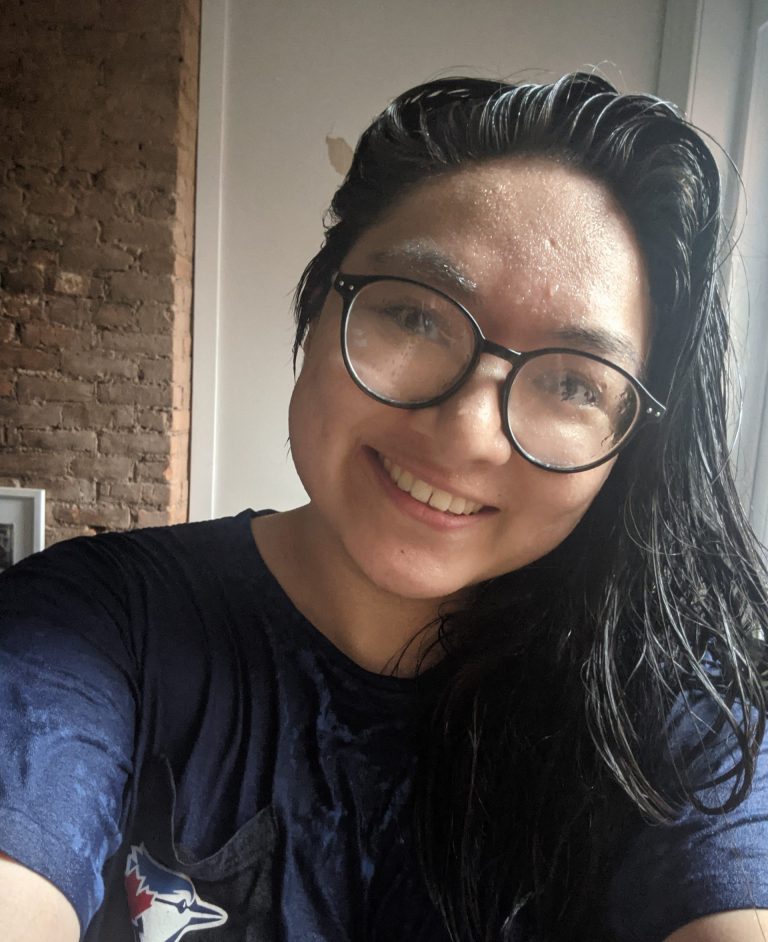
Zeinab Khawaja
Zeinab Khawaja graduated from the Bachelor of Health Sciences program in 2017, and is currently working at the Student Wellness Centre as a Health Promoter. She grew up in the desert climate of the Middle East, so she enjoys getting soaked in all the rain here in Hamilton, especially on a stressful day. The theme song of her life would probably be Unwritten by Natasha Beddingfield.

Karman Mangat
Karman Mangat is a third-year undergraduate student, at the DeGroote School of Business and is currently enrolled in the Bachelor of Commerce Program, in Integrated Business & Humanities. In his spare time, he loves playing competitive tennis with his older cousin, listening to 2000’s R&B music, and going on late-night walks with his older sister.

Catharine Munn
Dr. Catharine Munn is the leader of the Bounce Project and Team. She is a psychiatrist, educator and researcher who has spent much of her life studying and working at McMaster. Her career has focused on providing mental health care to post-secondary students, improving campus mental health systems, and developing programs and curricula to build mental health skills and literacy. She appreciates the power of stories, the arts and nature to inspire, connect and heal.
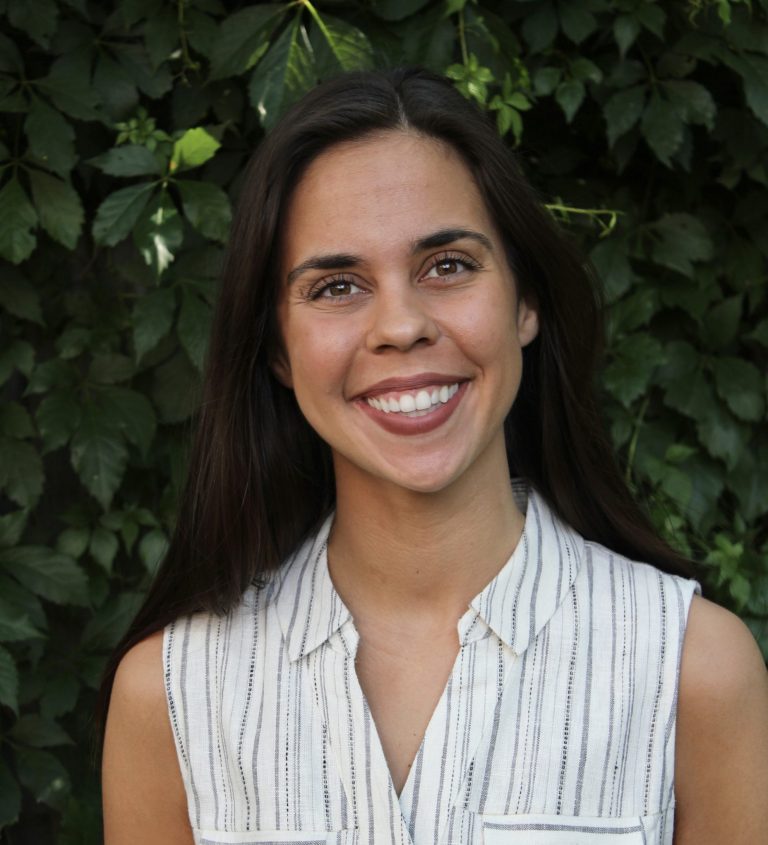
Michelle Ogrodnik
Michelle Ogrodnik is a PhD candidate at McMaster University where she combines concepts from psychology and kinesiology to better understand how exercise impacts attention and memory. In her free time, she enjoys hiking, playing board games, and eating cheesy carbs.

Tracy Prowse
Tracy Prowse is an Associate Professor in Anthropology and the Associate Dean Academic for the Faculty of Social Sciences. Her happy place is digging in the dirt in southern Italy, and she lives in the Hamilton area with her two superstar cats, Darwin (pictured) and Sweet Pea.
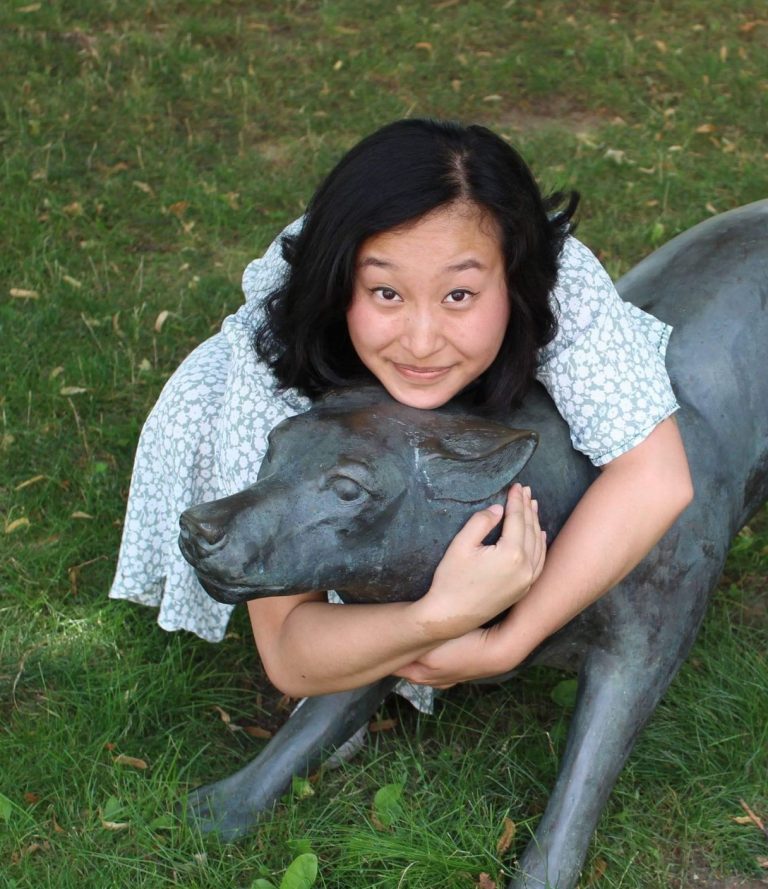
Annie Xu
Annie Xu is a McMaster graduate of the Bachelor of Health Sciences program (Child Health specialization). She is currently trying to figure out which direction she wants to take her career, and takes a lot of inspiration from her job with Bounce. She is an out of province student from Nova Scotia who is proud to call Hamilton, Ontario, home. She enjoys understanding others’ stories and mincing garlic for her cooking.


